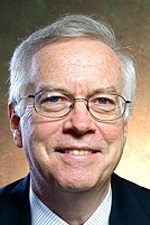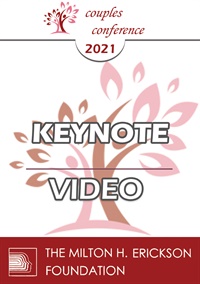CC21 Keynote 02 - Polarization In Intimate and Civic Life - William Doherty, PhD
Credit Available - See Credits tab below.
Total Credits: 1 including 1 A.P.A.
- Average Rating:
- Not yet rated
- Topic Areas:
- Conflict | Couples Therapy | Keynotes | Cultural and Social Contexts
- Categories:
- Couples Conference | Couples Conference 2021 | Online Continuing Education | Pioneers in Couples and Family Therapy
- Faculty:
- William Doherty, PhD
- Course Levels:
- Master Degree or Higher in Health-Related Field
- Duration:
- 1 Hour
- Format:
- Audio and Video
- Original Program Date:
- Jun 05, 2021
- License:
- Never Expires.
Description
Description: We live in the most polarized era since the 1850s. The presenter will describe the connection between escalating couple conflict and escalating political polarization. He will propose ways that therapists can work with politically divided couples, and he will describe his work since 2016 on “red/blue” polarization in the U.S. via the national nonprofit Braver Angels. He will argue that couples therapists have much to offer a nation in trouble.
Educational Objectives:
- Identify the major elements of political polarization.
- Describe key strategies for helping couples who are divided by politics.
- Discuss ways to apply therapy and other professional strategies to healing the political divide in the country.
*Sessions may be edited for content and to preserve confidentiality*
Credits
1 credits available.
The Milton H. Erickson Foundation, Inc. is approved by the American Psychological Association to sponsor continuing education for psychologists. The Milton H. Erickson Foundation, Inc. maintains responsibility for this program and its content.
THE MILTON H. ERICKSON FOUNDATION Policy on Disclosure
The Milton H. Erickson Foundation is proud of the conferences and other
educational opportunities it sponsors, taking care that the conduct of
these activities conforms to the standards and principles of behavioral
and medical sciences, thus ensuring balance, independence, objectivity
and scientific rigor in all individually sponsored or jointly sponsored educational
activities.
All faculty members participating in a sponsored activity, and those who
review and therefore are in control of content, are requested to disclose
any relevant financial relationship prior to the CME activity, including but
not limited to specific commercial interests, financial remuneration received
by faculty member or spouse, and what role or activity was performed
for this remuneration. If a conflict of interest exists as a result of
a financial relationship it will be resolved prior to the activity. A faculty
member will not be allowed to present if the conflict is not or cannot be
resolved.
Handouts
| CC21 - Keynote 2 - DOHERTY POLARIZATION SLIDES. CC 6.5.21 (3.4 MB) | Available after Purchase | ||
| Timestamped Transcript (936.5 KB) | 22 Pages | Available after Purchase |
| Ericksonian Learning Snapshot (240.5 KB) | 2 Pages | Available after Purchase |
Faculty

William Doherty, PhD Related Seminars and Products
William J. Doherty is an educator, researcher, therapist, speaker, author, consultant, and community organizer. He is Professor and Director of the Marriage and Family Therapy Program in the Department of Family Social Science, College of Education and Human Development, at the University of Minnesota, where he is also an adjunct Professor in the Department of Family Medicine and Community Health.


